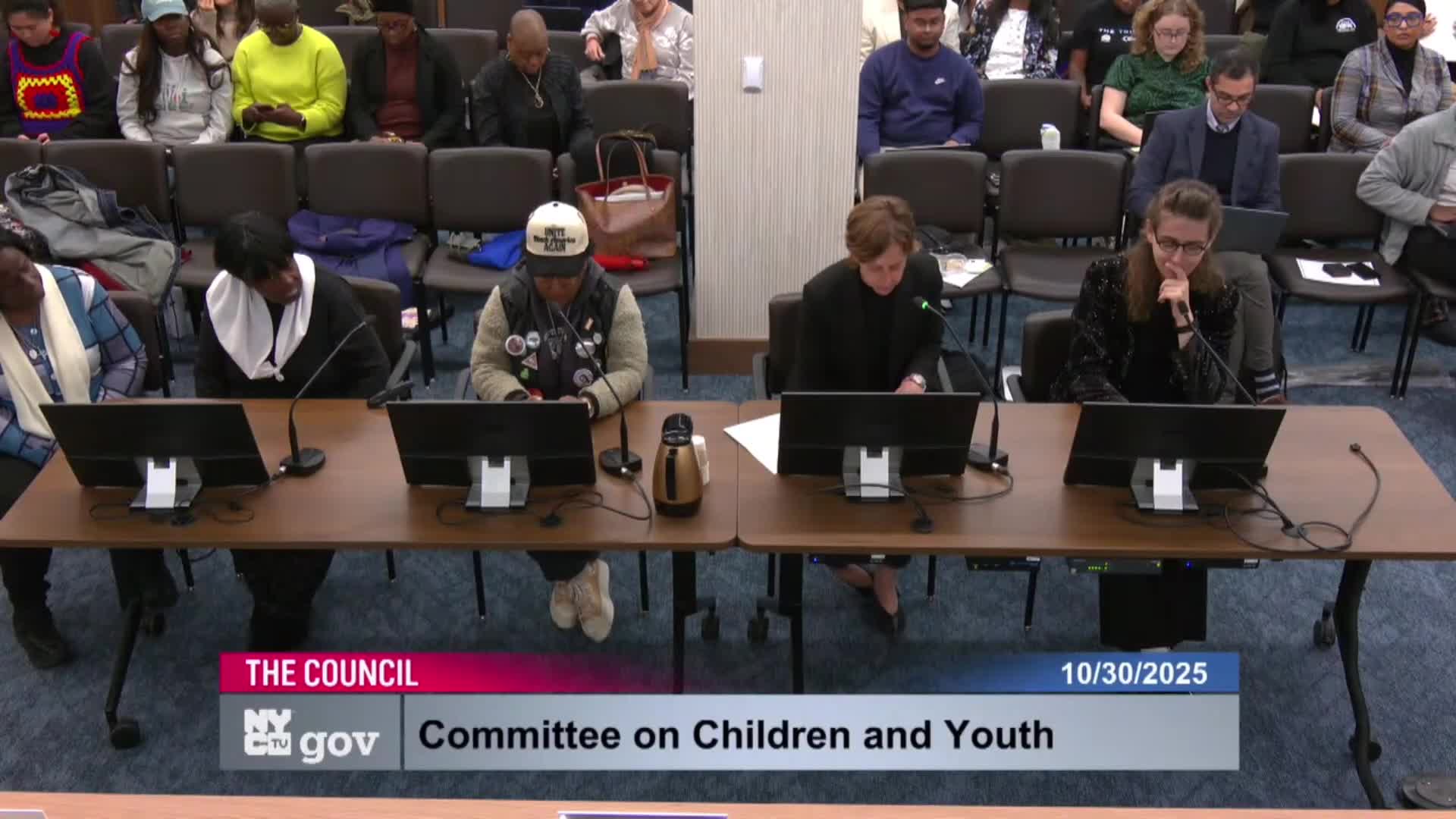Advocates press for family‑wellbeing office as ACS‑run FECs face trust concerns
Get AI-powered insights, summaries, and transcripts
Subscribe
Summary
Advocates and impacted parents urged the City Council to pursue a community‑led plan for a city office of family well‑being and to consider moving primary preventive services out of ACS, citing long‑standing distrust among families served by the agency.
Advocates, impacted parents and several council members urged the Council to pursue a new, community‑led structure for primary family supports and to consider moving some or all Family Enrichment Center (FEC) functions out of the Administration for Children’s Services (ACS).
Nora McCarthy of the Family Policy Project, speaking for the Narrowing the Front Door work group, outlined a community planning effort that would develop a city office for family well‑being. The proposal, McCarthy said, would centralize family supports, fund community‑led grantmaking and create restorative approaches to family safety that prioritize prevention over surveillance. “A new city office of family well‑being can centralize and coordinate some family support programming, support community led planning and grant making to build on neighborhood assets and fill gaps,” she told the committee.
Advocates and impacted parents explained why ACS oversight creates barriers for some families. Shalonda Curtis, an impacted parent and Narrowing the Front Door member, said many families distrust programs under ACS because ACS employees are mandated reporters; she urged community co‑leadership and baseline funding for grassroots providers. Georgina Gooden (community member) described enrolling for a prevention service and seeing ACS on paperwork, which triggered fear that participation could lead to an investigation.
ACS officials acknowledged the history of harm and said the agency has worked to minimize surveillance signals. The commissioner told the committee the agency keeps FEC spaces unbranded, trains mandated reporters to distinguish urgent safety threats from non‑reportable needs, and avoids collecting personally identifiable data at intake. “We think it is worthwhile to explore that… a thoughtful, advocate‑driven planning work around how to best organize family services in the city,” the commissioner said, adding ACS will participate in planning but does not want service delivery to pause during any transition.
Council members asked for concrete ‘‘firewalls’’ and operational changes. Providers who run FECs said they intentionally reduce intake barriers — some never require sign‑in — and that trust is built over time through word‑of‑mouth, consistent staff and community co‑design. Several testified that community ownership over the site name, program design and budget decisions materially increased families’ willingness to use services.
The hearing left the question of governance open: advocates reiterated the desire for a distinct city entity focused on family well‑being, while ACS said it will take part in community‑led planning and cautioned that a reorganization would require careful attention to financing, procurement and staff continuity.
